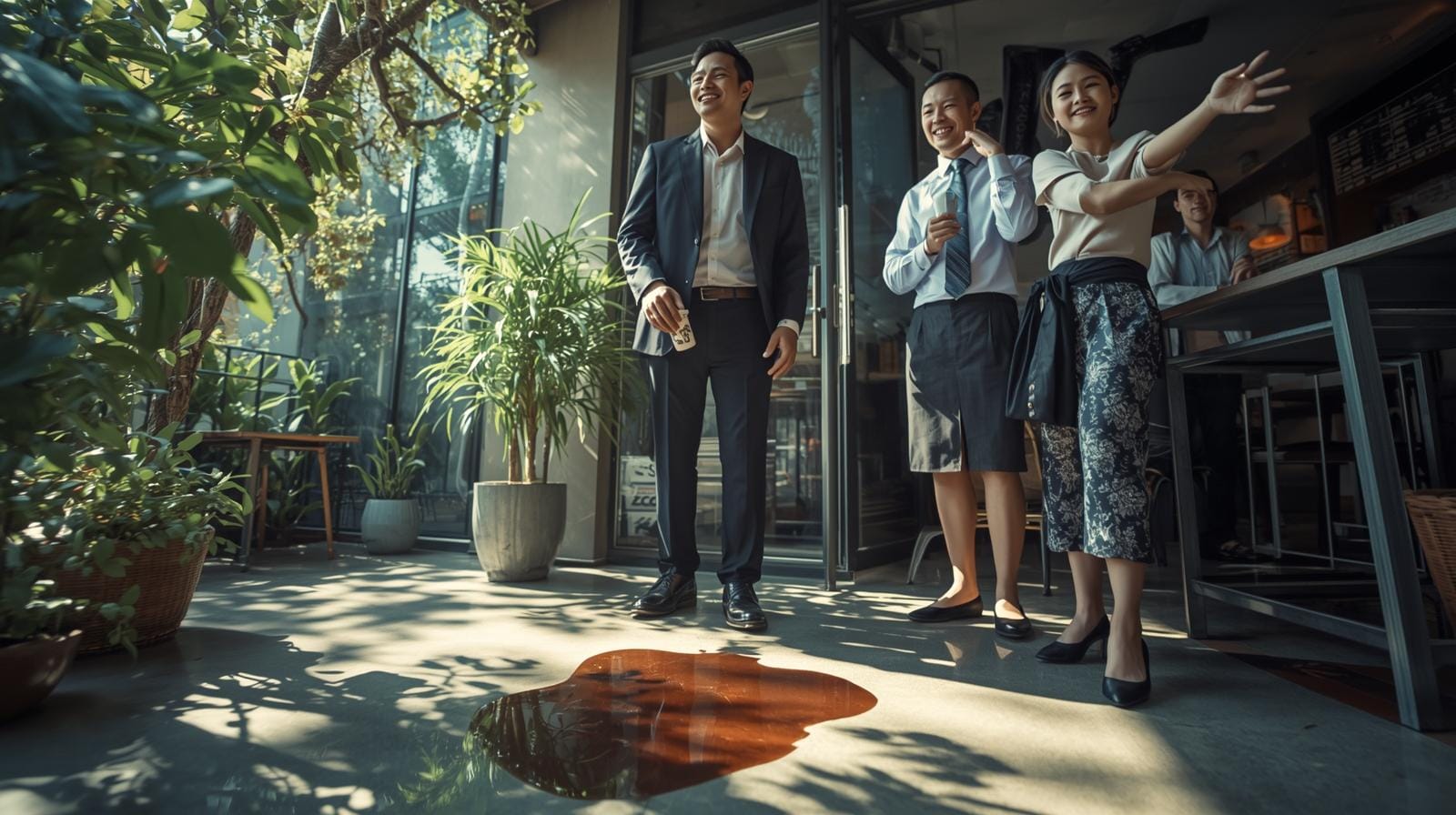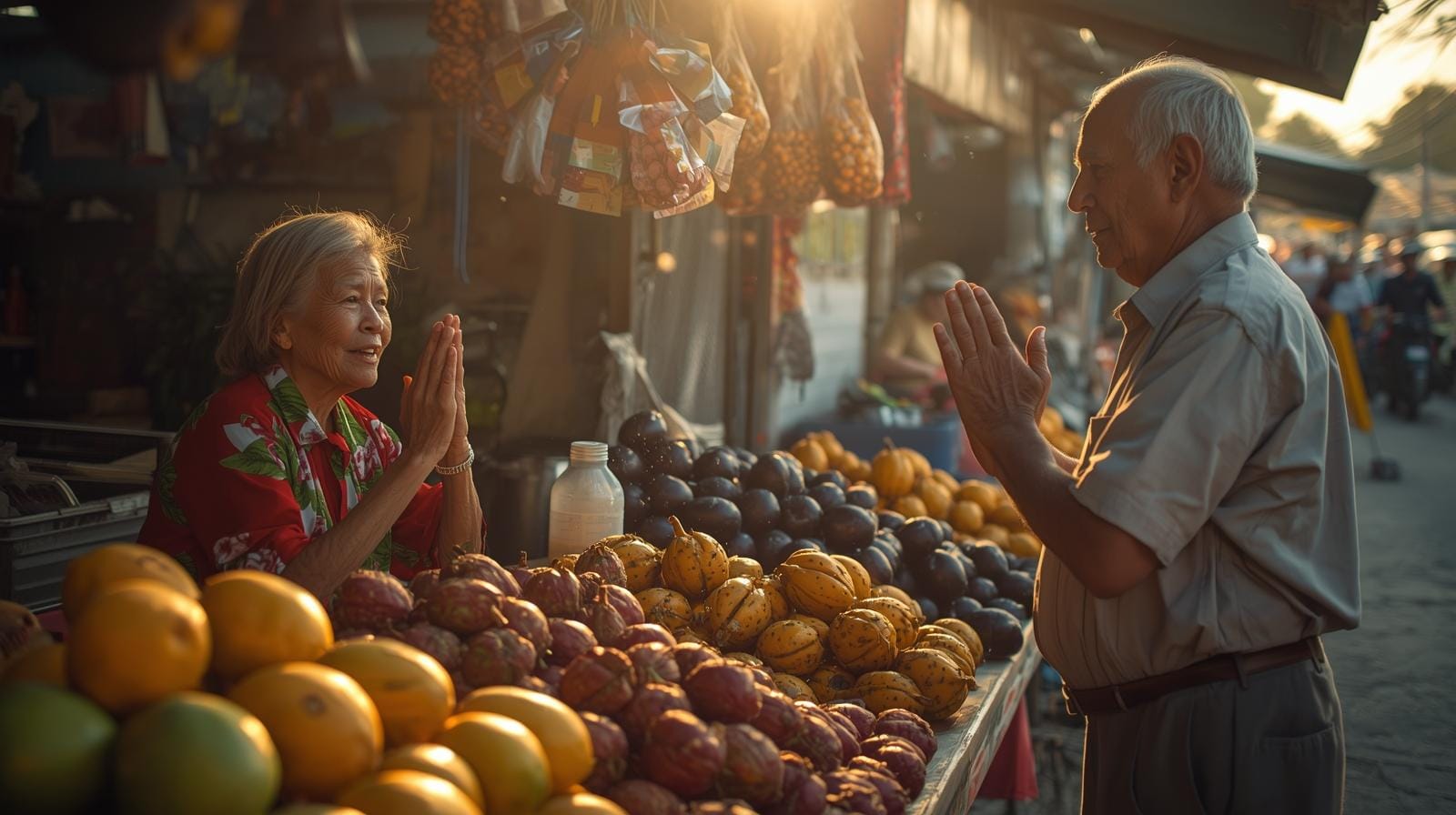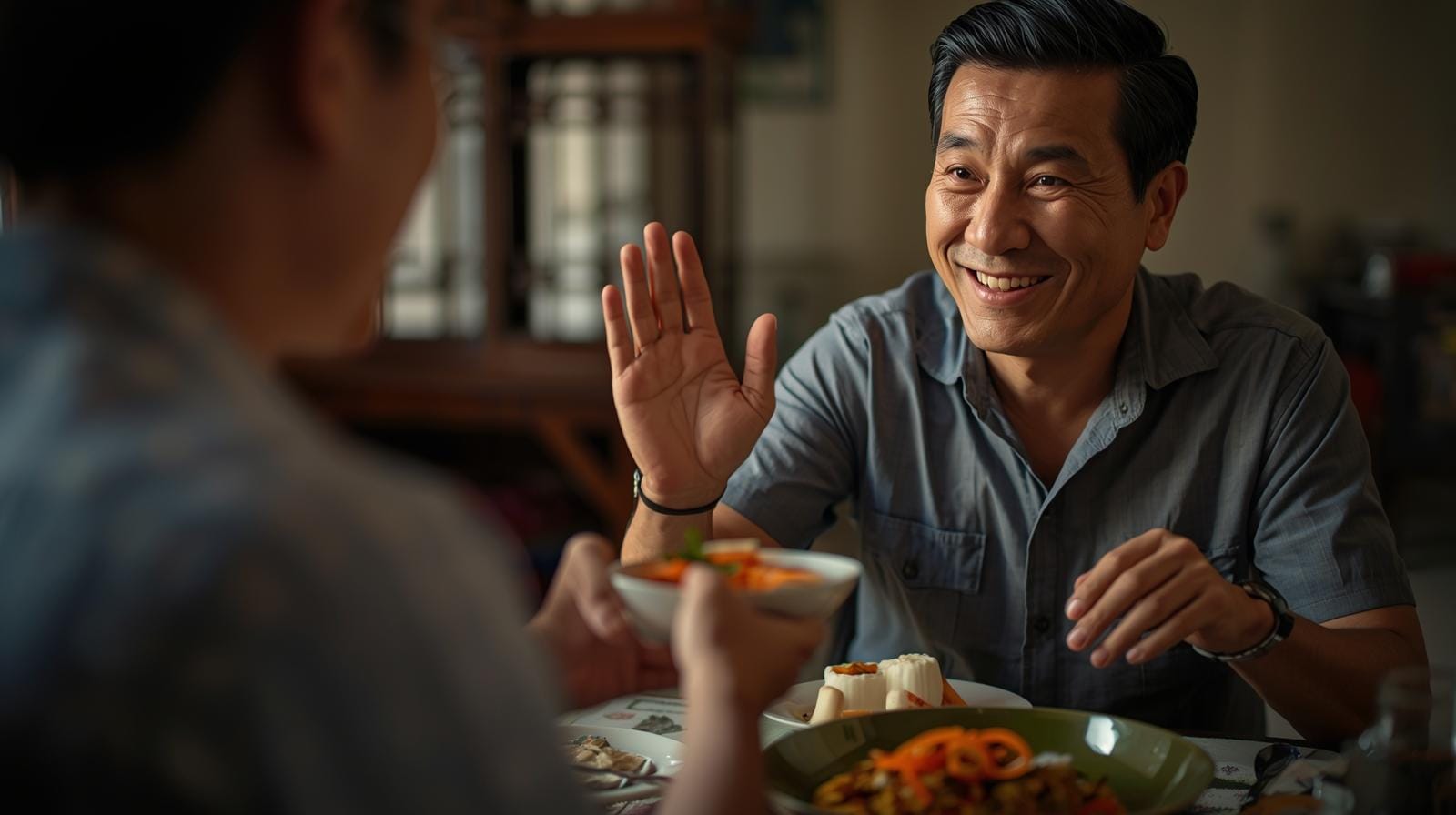The Thai Smile: More Than Meets the Eye
Thailand didn't earn its 'Land of Smiles' nickname for nothing. Thais smile in moments of joy, yes, but also to soften awkward situations, to apologize silently, or to ease someone else's discomfort. An expat's first misstep often comes from taking those smiles at face value. You might assume all is well because everyone is grinning, only to find out later you missed a subtle sign of tension. In Thai culture, keeping a pleasant outward demeanor is a way of life. Showing frustration or anger openly is extremely rare – instead, a gentle smile bridges the gap where words might embarrass. It's a lesson new arrivals learn quickly: sometimes, a smile isn't happy or agreeable – it's polite.
A smile in Thailand can say, 'I'm sorry you're upset,' just as easily as 'I'm happy.'
This dedication to harmony underpins so many interactions. It's the same reason minor problems are met with a shrug and a mai pen rai – never mind. In our next unwritten rule, we look at Thailand's famous no worries philosophy.
Mai Pen Rai: The No-Worries Way of Life
Mai pen rai is more than a phrase – it's practically a national motto. Literally meaning "it's nothing," these three little words are the reflexive response to accidents, delays, and everyday misfortunes. Drop your groceries? Mai pen rai. Stuck for hours in infamous Bangkok traffic? Mai pen rai. For Westerners used to voicing complaints or demanding fixes, this laid-back mindset can be startling. The Thai approach prizes keeping calm (jai yen, a 'cool heart') over getting one's way. An expat who fumes at a minor inconvenience will likely get polite silence in return – and later, gentle chiding from Thai friends to chill out. Learning to say mai pen rai – and truly mean it – is a survival skill that every foreigner picks up after a few sweaty lessons in patience.
Mai pen rai isn't apathy – it's the art of letting go and trusting life to sort itself out.
Staying cool and unbothered is one half of Thailand's social puzzle. The other half is knowing what's really being said – even when it isn't said at all. That brings us to another rule expats bump into early: the indirect "yes" that might actually mean "no."

Saving Face: When "Yes" Means "Maybe"
Direct refusals and public confrontations are as rare as snow in Thailand. In a culture where saving face – maintaining one's dignity and others' respect – is paramount, saying "no" can feel as harsh as a slap. Instead, you'll hear vague responses: "I'll try," "Maybe later," or even an affirmative "yes" that, puzzlingly, never materializes into action. For newcomers, it's a major adjustment. Perhaps you invite a Thai coworker to an event; they smile and say yes, so you expect them there – only to learn later they never intended to come. They weren't being deceitful; they were being kind. In Thai social code, open disagreement or refusal risks making someone lose face (feel humiliated), so people go to great lengths to avoid it. Expats learn to listen for what's not said – the hesitation in a voice, the polite laugh that precedes an unchanged behavior – as cues to the truth. Over time, you begin to appreciate the grace behind this gentle indirectness, even if it means relearning how to ask questions and interpret answers.
In the Land of Smiles, an outright "no" is rarely heard – harmony comes first, even at the cost of clarity.
Adapting to this subtle communication is much easier when you understand the social hierarchy that influences it. In Thailand, knowing who you're speaking with – older or younger, boss or peer – is key. The next unwritten rule is all about respect and the quiet power of rank in everyday interactions.

Hierarchy and Respect: Mind Your Manners and Titles
Thai society is built on a quiet but firm hierarchy. Age, social status, and titles aren't openly flaunted, but they influence every interaction. Elders and superiors are addressed with respect – often with the honorific Pi (older sibling) before their name – and are deferred to in decision-making. As a newcomer, you might not catch these nuances immediately. Perhaps you call your Thai colleague by their first name, not realizing you've skipped a respectful Khun (Mr./Ms.), or you fail to wai (press your palms together in greeting) to a senior official at a meeting. No one will scold you; they'll likely forgive it. But understanding and practicing these courtesies earns genuine smiles. Even body language reflects this respect: the feet are considered the lowest and dirtiest part of the body, not to be pointed at people or buddha statues, while the head is almost sacred – you should never touch someone's head, especially an elder. Such rules aren't about classism; they're about khwam nap thaam, a mutual code of honor. Foreigners who embrace the rituals – greeting neighbors with a gentle wai, yielding to the oldest person at a dinner table, or simply using polite particles like krub/ka in their speech – find they unlock a new level of warmth and acceptance from their Thai community.
Respect flows upward in Thailand: everyone knows their rung on the ladder, and the cultural dance ensures each person feels it – gently.
By now, it's clear that living in Thailand means recalibrating your social compass. But beyond keeping cool, reading between the lines, and showing respect, there's one more unwritten rule that truly captures the soul of Thai society. It's about opening your heart – both in giving and in not wanting to take too much. Our final lesson dives into that generous, hesitant heart of Thai culture.

Kreng Jai and Nam Jai: The Heart of the Thai Social Code
At the core of all these customs lies an ethic of consideration and generosity – concepts the Thai call kreng jai and nam jai. Kreng jai is that feeling of not wanting to impose on others. It's why your Thai friend might refuse your help at first or why coworkers hesitate to take the last slice of pizza. They're being considerate, ensuring no one is burdened or made uncomfortable. Nam jai, literally "water of the heart," is the flip side: sincere generosity. It's the colleague who brings you extra mangoes from their tree, or the neighbor who spends an hour helping you navigate a Thai form – not for any reward, but because a giving heart is its own reward. These twin values can bewilder expats at first. You might worry a polite refusal ("no, thank you") is genuine when it's actually a dance of manners. Or you might be astonished at the lengths someone goes to help you without asking for anything in return. Over time, though, foreign residents start embracing these ways. They find themselves saying "up to you" rather than pushing a preference, or paying forward a kindness in true nam jai spirit. In a very real sense, kreng jai and nam jai are the invisible threads weaving Thai society together – and the longer you live here, the more you feel them strengthening your own relationships. Many expats admit it takes years, even decades, to fully appreciate the "why" behind these unwritten rules. But that journey is its own reward. It transforms everyday interactions – the morning market run, the office tea break, the chat with a neighbor – into moments of connection. It's no surprise that so many foreigners who discover this depth end up extending their stay, sometimes for life. They come for a job or an adventure and stay for the community and belonging. Some even seek out long-term solutions, like the new Destination Thailand Visa (DTV), to give themselves the gift of time to truly immerse in this culture of quiet kindness.
The longer you stay, the more Thai your heart becomes – opening up with nam jai and held in gentle check by kreng jai.
And so, the unwritten rules remain unwritten – learned through shared meals, misinterpreted smiles, and gradually earned understanding. For expats willing to listen and learn, Thailand offers not a puzzle to be solved, but a friendship to grow into. The social code isn't a checklist; it's a conversation – one that unfolds over years living here, turning misunderstandings into smiles of your own.

Enjoyed this insight into Thai culture? Consider joining our community at The Thailand Advisor for more stories and insider guides. Our free newsletter brings you a closer look at life in Thailand – delivered straight to your inbox.

Still juggling border runs or short-term visas?
Secure 10 years of certainty with the Long-Term Resident Visa (LTR) — designed for investors, executives, and global citizens who want to anchor their lives and assets in Thailand.
✅ Own property and invest with confidence
✅ Bring family under one stable visa
✅ Enjoy global tax efficiency and long-term peace of mind

Tired of coverage gaps or rejection at hospitals?
Protect yourself with Premium Expat Health Insurance — tailored for foreign residents, retirees, and long-term visa holders in Thailand who need global protection and local acceptance.
✅ Accepted by major Thai hospitals
✅ Meets visa and immigration requirements
✅ No more panic over surprise medical bills










